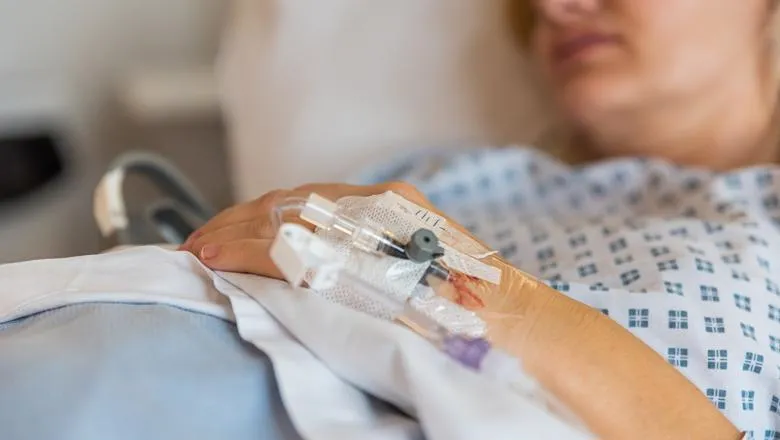This is a watershed moment for UK cancer services - the biggest cancer crisis ever - we can't accept the normalisation of record-breaking cancer treatment waiting times. Clinicians know it doesn't need to be this way and that we don't need new ground-breaking research to avert disaster. We need a radical new plan, investment in capacity solutions in treatments like radiotherapy, and the political will to treat more patients on time. If ever there was a time for us to deliver much-needed investment into cancer treatment, it is now.
Professor Pat Price, Oncologist and founder of the £CatchUpWithCancer campaign
15 December 2022
Cancer care crisis needs urgent attention, experts warn
The crisis in NHS cancer care is a ‘watershed moment’, according to King’s academics.

Researchers from the Institute of Cancer Policy at King’s College London, with clinicians from Imperial College London, Radiotherapy UK, and Check4Cancer have written an urgent warning in the Lancet Oncology.
As NHS figures show a decline in the number of people receiving their first cancer treatment within two weeks, leading oncologists are calling on the government to address cancer care with the same urgency deployed for the search for the COVID vaccine.
“The UK public and the NHS should not tolerate the normalisation of delayed cancer care. The NHS and frontline staff need the same urgency and leadership, combined with the authority to work through obstructive bureaucracy, that was given to the Covid-19 Vaccine Taskforce,” they write.
Of the 14,425 cancer patients referred by their GP in October, 60.3% waited less than two months by the time they started treatment. This figure is the second-lowest logged since records began in 2009 and falls below the NHS target of 85%. It means 5,728 people waited more than eight weeks to start cancer treatment.
The researchers explain that a four-week delay in cancer treatment "increases mortality by between 6% and 13% for solid cancers, with further increases if the delay is longer."
“To immediately improve cancer survival, the UK needs to deliver cancer treatment within the recommended timeframe. No research breakthroughs are needed, just an effective, efficient pathway to diagnose and treat patients with cancer,” write the authors, including Professor Richard Sullivan, Director of the Institute of Cancer Policy at King's.
While an NHS workforce plan would lead to “major improvements in cancer care”, the team of experts warn that short-term action is needed to save lives now. In their appeal to government, they say the NHS must retain current staff and "give them the tools and support they need to do their jobs".
The authors write: "Inefficient practices have emerged: secretarial support suspended so consultants are less productive than they should be, obsolete IT slowing everyday work, workflow tools not being purchased, and antiquated equipment, such as radiotherapy machines, so out of date they take twice as long as modern machines to treat patients less well than is possible."
They also explain that there needs to be major investment in radiotherapy, which is in danger of collapse, despite the fact that it is needed by at least 53% of UK patients with cancer. It is involved in 40% of cancer cures.

